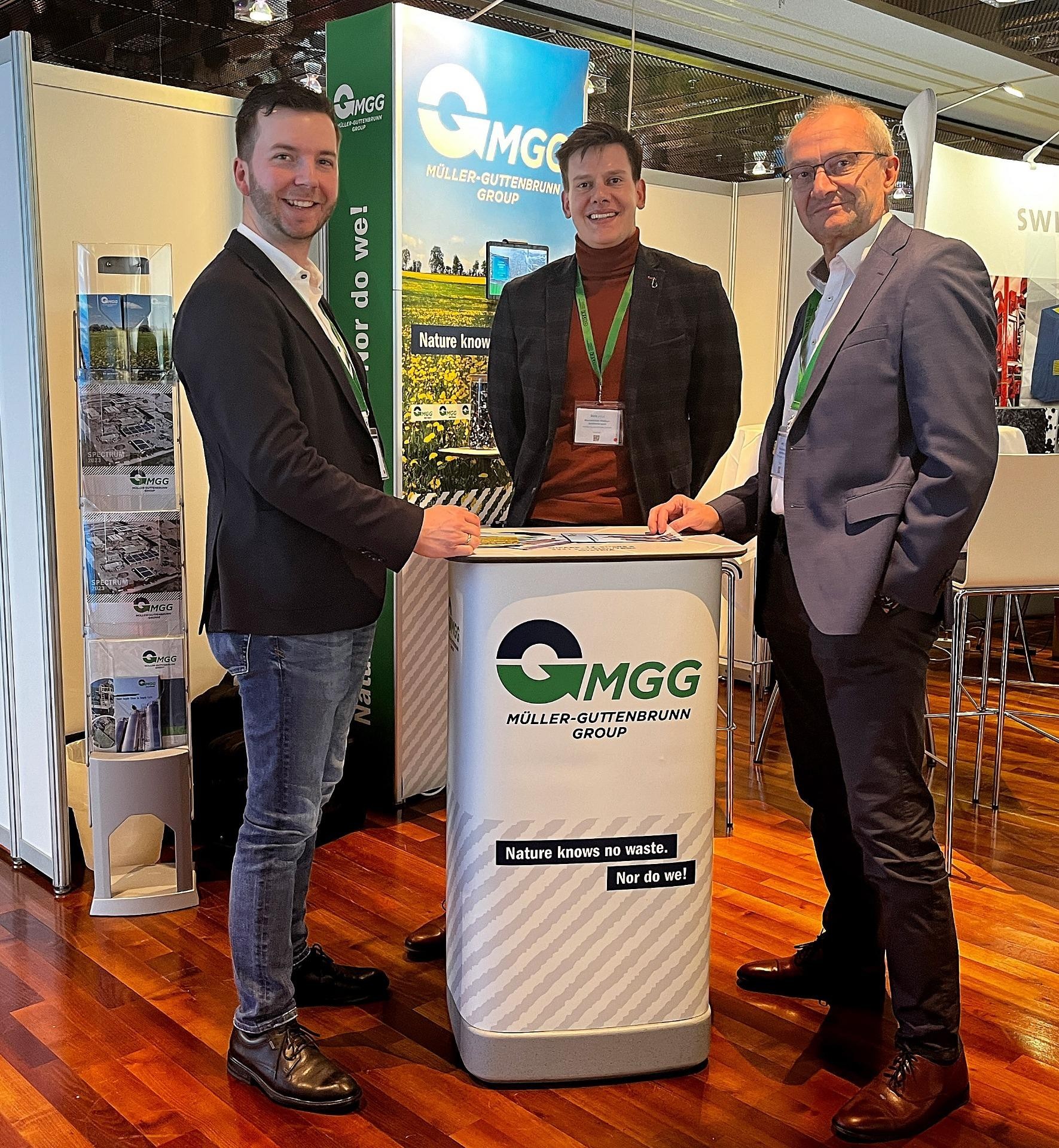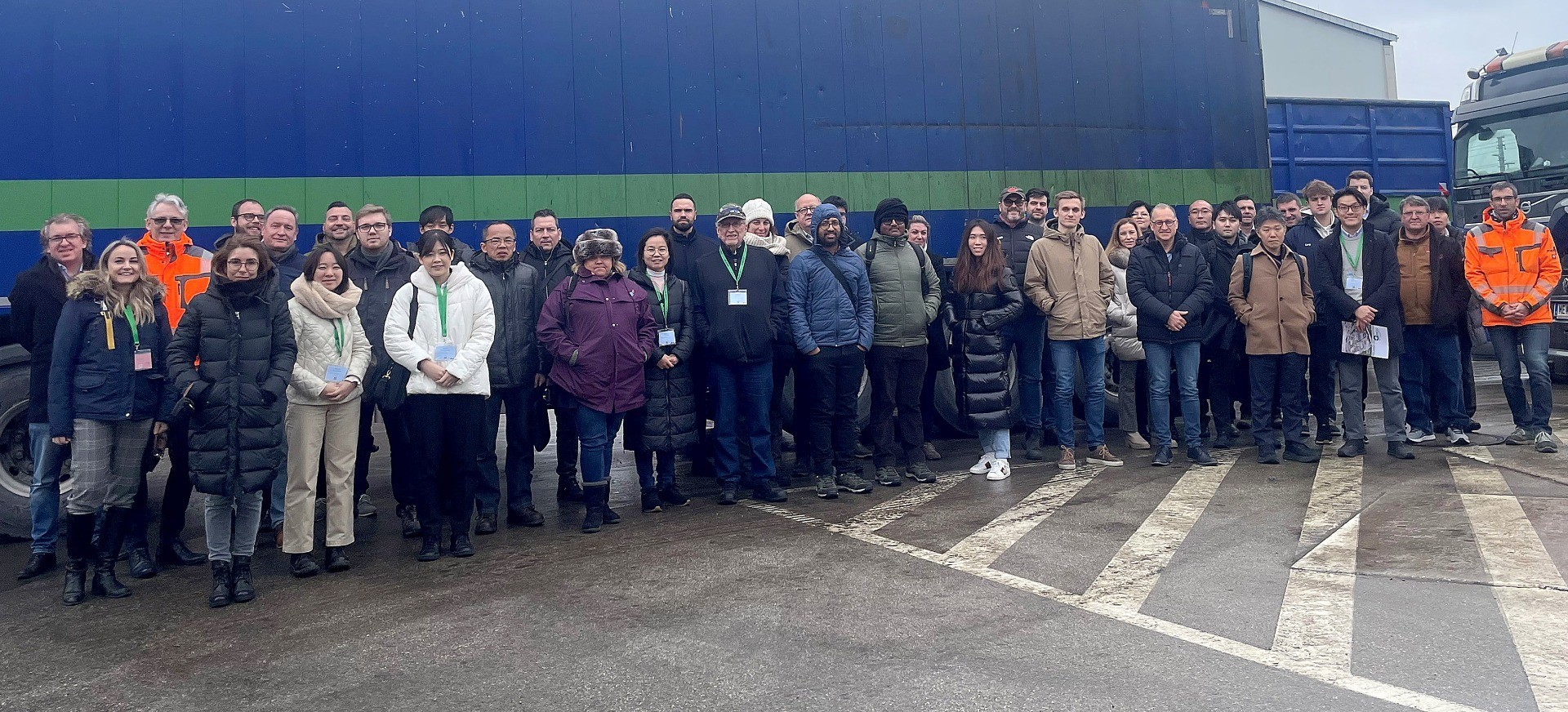IERC 2024: Current and future challenges
The 22nd International Electronic Recycling Congress (IERC) took place this year from January 17 to 19 and - as in previous years - was held in Salzburg. Around 500 international experts from the fields of production, design, promotion, business development, material supply, recycling, logistics and authorities came together to exchange views and experiences.
All in all, IERC 2024, the leading event in the world of circular economy electronics, offered a comprehensive conference program with lectures, discussion panels, workshops and an excursion to the Müller-Guttenbrunn Group in Amstetten and Kematen an der Ybbs.
This year's conference focused on topics such as "Extended producer responsibility", "Design for recycling" and "Right to repair", to name but a few. Companies from the USA and Australia presented refurbishment models that could also be implemented in Europe.
IERC Honorary Award 2024 went to recycler from Ireland
Kurt Kyck from KMK Metals Recycling, Ireland, spoke at the beginning of the congress about the path that e-waste will take in the future. He criticized the fact that recyclers are held responsible for the illegal shipment of WEEE outside the European Union. Manufacturers, on the other hand, take little responsibility in this matter. There is hardly any willingness to change, producers are intent on selling their products and the post-use phase is not in their interest, criticized Kyck.
Later in the day, Kurt Kyck was presented with the IERC Honorary Award 2024 for his achievements as an entrepreneur. The laudatory speech was given by Jean Cox-Kearns, Chair of the IERC Steering Committee.
"Design for recycling": recycling companies make recycling a success
Also among the speakers was Caroline Kennedy from Logitech, who reported that the computer accessories manufacturer uses recycled plastics in the manufacture of its products. The company is looking at recycling processes in operational practice in order to draw conclusions for the design of product developments. "How do I design something so that it can be recycled again?" is the basic principle.
The tenor of the discussion was that changes only take place in practice. All targets to increase the WEEE recycling rate require practical implementation. Ultimately, only the recycling companies can achieve recycling success.
The participants also agreed that the EU must become more resilient and less dependent on raw material imports. Manufacturers and recyclers should cooperate better, but awareness still needs to be raised. There is also room for improvement in WEEE collection, especially when it comes to information on return points. Consumers often do not know where they can return their old appliances or dispose of them properly.
The participants in the discussion agreed that manufacturers need to provide detailed information on the components used in order to make products even more recyclable.
Refurbishment and the right to repair
Another important focus of the congress was the topic of the "right to repair". Jérémy Fouriau from Belgium explained the new EU directives. Refurbishment models from Australia and the USA, which could also set a precedent in Europe, were also presented. More electronic waste is repaired in these countries than here in Europe. Toner powder from printer cartridges, for example, is also used as an asphalt additive.
Visit by Environment Minister Leonore Gewessler at the IERC 2024
The Austrian Minister for Climate Action, Environment, Energy, Mobility, Innovation and Technology, Leonore Gewessler, also visited IERC 2024. In her welcoming speech, she emphasized the importance of recycling old electrical appliances: "The transformation to a climate-neutral circular economy requires comprehensive changes, not only of a technological and economic nature, but also in the fundamental attitudes and behaviours of society as a whole - a comprehensive paradigm shift."
IERC goes MGG
Another highlight of this year's International Electronic Recycling Congress was the excursion for congress participants to the Müller-Guttenbrunn Group's sites in Kematen an der Ybbs and Amstetten. Despite the cold and wet weather, the excursion group set off to visit the three plants MGG Polymers, MGG Metran and MGG Metrec.
The participants toured the plants with great interest and were impressed by the innovations, pioneering spirit and technical expertise. "It is incredible what the Müller-Guttenbrunn Group has been achieving here in the Mostviertel region for many years. MGG is a model recycling company in every respect," said the impressed participants.


